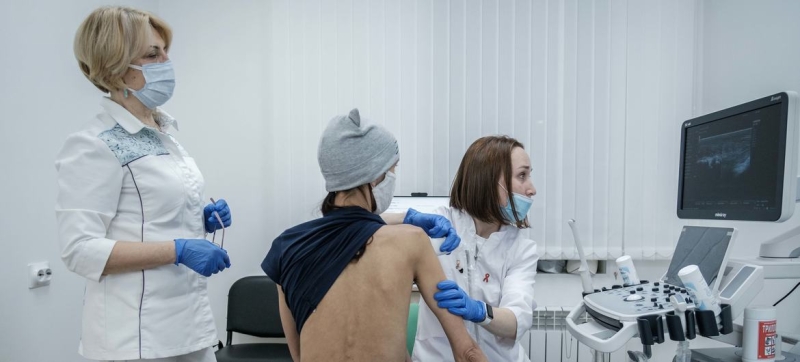
Eastern Europe and Central Asia continues to experience a sharp increase in the number of new HIV/AIDS cases. The UN General Assembly discussed progress in eradicating HIV Health
Globally, more than three quarters of people living with HIV receive life-saving treatment—nearly thirty million people. Access to antiretroviral therapy has increased significantly in sub-Saharan Africa and the Asia-Pacific region, where more than 80 percent of people living with HIV live.
This was stated by the First Deputy Secretary General of the UN Amina Mohammed, speaking at a meeting of the UN General Assembly dedicated to the fight against HIV/AIDS. She called the progress “the greatest public health achievement of recent times.”
“If this progress continues, next year we will reach a key global milestone: 34 million people will receive treatment for HIV,” she added. “This allows us to achieve our global goal of ending AIDS as a public health threat by 2030.”
Eastern Europe and Central Asia continues to see a sharp increase in the number of new HIV/AIDS cases, up 49 percent since 2010. This is highlighted in the latest UNAIDS report, The Path to Ending AIDS.
Progress in the HIV response has been achieved by ensuring that legal and policy frameworks do not violate human rights, but provide and protect them. In 2022 and 2023, harmful laws were repealed in several countries, and five of them (Antigua and Barbuda, Cook Islands, Barbados, St. Kitts and Nevis, and Singapore) also decriminalized same-sex sexual activity.
However, despite all the calls from the UN, 145 of the 173 countries that submitted reports still have criminal liability for possession of small amounts of drugs, 168 countries have criminalized work in the sex industry in one form or another, and 65 countries have banned law, same-sex sexual relations are consensual. This is stated in the UN report, which was discussed in the General Assembly on Wednesday.
Read also:
UNAIDS: ending the AIDS epidemic by 2030 is possible
The UN recommends Implement evidence-based, effective, gender-sensitive, human rights-based and highly effective HIV prevention and treatment programs.
Maintain high levels of treatment coverage and viral load suppression is essential to ensure good health, longevity, sexual and reproductive health and well-being of people living with HIV and their loved ones, says the UN Secretary-General’s report.
There are still many obstacles on the way to achieving the goals, noted First Deputy UN Secretary General Amina Mohammed in her speech. “Resources are dwindling. The fiscal crisis prevents the allocation of funds for social programs, she emphasized. – Punitive laws, mob justice and hate speech against minorities exacerbate stigma and exclude people from vital services. As a result, we find ourselves at a crossroads.”
Mohammed called for a path of solidarity that she said would lead to eliminating AIDS as a public health threat by 2030 – “a goal which is already visible.”
